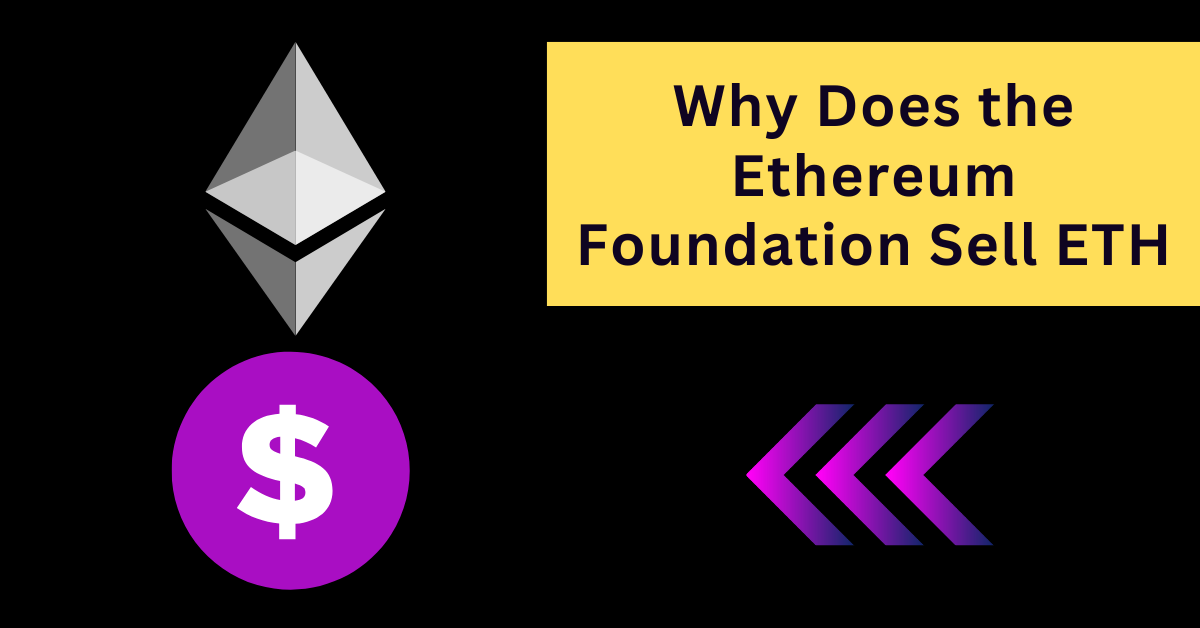In the world of cryptocurrency, the decisions made by leading organizations often spark debate. Recently, the Ethereum Foundation found itself at the center of scrutiny for its decision to sell Ethereum (ETH) rather than stake it.
Vitalik Buterin, Ethereum’s co-founder, addressed the community’s concerns and explained the rationale behind these sales.
Funding Essential Ethereum Projects
The Ethereum Foundation’s primary goal is to support the development and long-term success of the Ethereum blockchain.
According to Vitalik Buterin, the funds generated from the sale of ETH are used to fund critical projects that are vital for the ecosystem.
These projects range from improving Ethereum’s infrastructure to enhancing its security and privacy features.
For instance, one major project funded by these sales was the implementation of EIP-1559, a proposal that reduced transaction costs and improved transaction speeds on the Ethereum network.
Additionally, funds have been used to develop zero-knowledge (zk) technology, which enhances user privacy, and account abstraction technologies, aimed at simplifying wallet security for users.
Buterin made it clear that selling ETH allows the foundation to directly support the development and maintenance of the blockchain without relying on the market’s ups and downs.
This funding model ensures Ethereum’s continuous growth and innovation, which Buterin emphasized is crucial for the blockchain’s future.
The Decision to Avoid Staking ETH
One of the community’s biggest questions was why the Ethereum Foundation doesn’t stake its large ETH holdings.
By staking, the foundation could earn a return on their ETH and generate additional funds for development. However, Buterin explained that staking could lead to unintended consequences.
The Ethereum Foundation holds a significant amount of ETH, and staking such a large sum could give the foundation an outsized influence over the network.
Buterin stressed that Ethereum’s decentralized nature is a core part of its identity. By avoiding staking, the foundation ensures that it does not have an undue influence on any potential changes or contentious decisions regarding the blockchain.
Buterin gave the example of a potential hard fork, a situation where the blockchain splits into two different versions.
In such a scenario, the foundation would be forced to take sides if they were staking ETH, something they want to avoid.
Instead, the foundation’s focus remains on development and allowing the network to evolve naturally without external pressures.
Supporting Ethereum’s Global Growth
Another significant reason for selling ETH is to fund global Ethereum events and initiatives that help foster the blockchain’s growth worldwide.
From local meetups to large-scale conferences, these events play a crucial role in educating developers, users, and businesses about Ethereum’s potential.
Buterin explained that these initiatives not only help Ethereum gain global recognition but also attract new developers and contributors who can bring fresh ideas to the ecosystem.
The foundation’s contributions to these events often go unnoticed, but they have a lasting impact on Ethereum’s long-term success.
The Bigger Picture: Long-Term Goals
Ultimately, Buterin defended the Ethereum Foundation’s ETH sales as being in line with the blockchain’s long-term goals.
Rather than hoarding ETH or using it for staking, the foundation uses its resources to fund critical advancements that benefit the entire ecosystem.
By maintaining a neutral stance in the market and using its funds to drive development, the foundation is ensuring that Ethereum continues to grow and thrive.
The transparency shown by Buterin in addressing these concerns has reassured many in the community that the foundation’s decisions are made with Ethereum’s best interests in mind.
In conclusion, the Ethereum Foundation’s ETH sales aren’t just about generating revenue; they’re about ensuring that the Ethereum blockchain remains innovative, decentralized, and secure for years to come.

